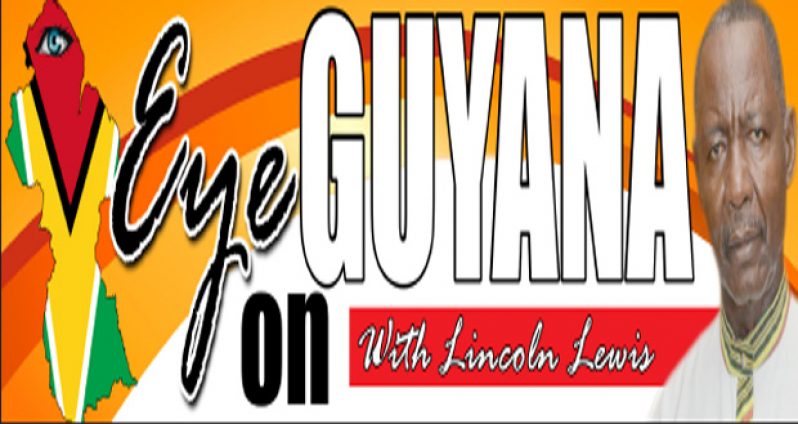STATE media can play a leading role in improving quality journalism, inclusive of probing beneath the surface/apparent, fact-checking, and following up on commitments given by the generators of news. This media can bring about a greater degree of fairness and accountability in society.
As the people’s watchdog, the State media is best poised to set the tone for welding the nation’s diverse groups and interests together, consistent with the nation’s motto.
Unfortunately, under the Bharrat Jadgeo and Donald Ramotar regimes, the State media was used as a wedge in society — to demonise dissenters and criminalise the opposition and its supporters. To dissent was to be labelled and to become a fringe element in the society, opening one’s self to ridicule and other possible dangers.
For instance, the Guyana Chronicle had been used by columnists such as Rickey Singh, a known PPP sympathiser, to perpetuate hate and to attack and settle old political scores, notably with his major nemesis Forbes Burnham, even though Burnham died for more than 25 years and is unable to respond.
Singh had also used the newspaper to attack the African community, but failed to use his pen to call for the creation of a just society and fair media.
The letters section in the Chronicle had for years allowed phantom writers whose purpose was to spew venom in furtherance of maintaining a divided society.
Also seen was the PPP’s divide-and-rule policy in the newspapers’ editorials.
As a principal dividing force in the nation, the State media was used to relentlessly attack the opposition. Even at the time when the National Assembly was opposition controlled, rarely, if ever, had its members any objective coverage. Though it is uncertain whether any attempt was ever made by persons to respond to the diatribe spewed, from my own experience being denied the right to respond, it is fair to assume similar treatment had been meted out to others.
When, in response to budget cuts by the opposition-led National Assembly, the then PPP government had used State media workers to picket the opposition, it had demonstrated the political depravity to which the media had sunk, and had constituted an affront to public servants and an abuse of the people’s privilege vested in the Executive.
The policy position taken by the State media would have created an untenable situation for workers, who were forced to sell their skills and labour to execute tasks that on many occasions were against their conscience and better judgment. Former President and then Opposition Leader, Desmond Hoyte, was correct in his call for a boycott of the Guyana Chronicle in the hope that the government would have come to its senses.
The people have voted for a change, and this change must also include a new State media culture. What happened under Jagdeo and Ramotar must not be allowed under David Granger and Moses Nagamootoo. The call for responsible journalism must be met with the opposition and all other interest groups being given the right to respond to any misrepresentation of their position(s). This is consistent with deepening democracy.
So, even as we speak of inclusionary democracy, it must be pursued with the participation and involvement of groups, and the protection of their right to freedom of expression and sharing ideas/knowledge and information without fear or favour.
The State media has its role in society, and that role must be properly defined to enable progressive management and performance, which will serve as benchmarks for development.
In a fractured and divided society such as ours, the state media must be used to weld the people by addressing and highlighting the strengths within the various cultures, striving for accurate reporting, learning about different parts of the country and its interests, assisting in factual reporting of the historical development of this country, and highlighting the role(s) the different groups played in development.
No longer must the State media be used to tell this nation that it was Dr Cheddi and Janet Jagan who started the struggle for one man one vote (universal suffrage) without according Hubert Nathaniel Critchlow his rightful place in history. For it was he who, in 1926, started this march at a mass-based level.
No longer must the State media be used to proclaim that one group is industrious and the other lazy, when the historical evidence shows these statements have no basis in fact.
The State media must perform at such a high level of truth and accountability as demonstrates respect for the contributions of all our people.
It is the government which is tasked with the responsibility of moulding our nation, and in a developing society such as ours, this is very important in facilitating dissemination of national programmes and policies.
Having had these and worse experiences, the society must have learnt. We, the people, will therefore expect this current government, after complaining against the Jagdeo and Ramotar tyranny over State media, to occasion serious reformation of the State media. Under this new regime, the people’s media must serve the people, or face the same condemnation and labels earned by the previous PPP regimes.
State media must no longer embrace activities that will see a continuation of what is deemed unacceptable in modern democracies. It must safeguard against this without seeing or believing privatisation is the only answer or way out of State media tyranny.












